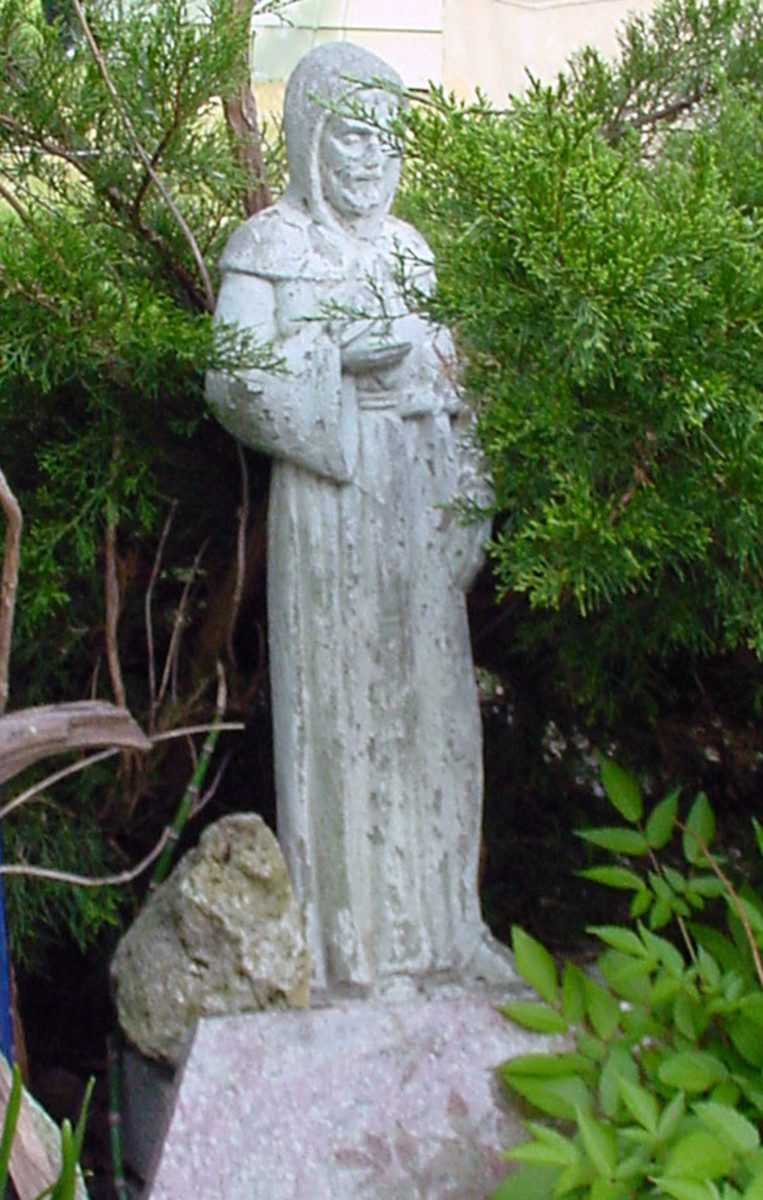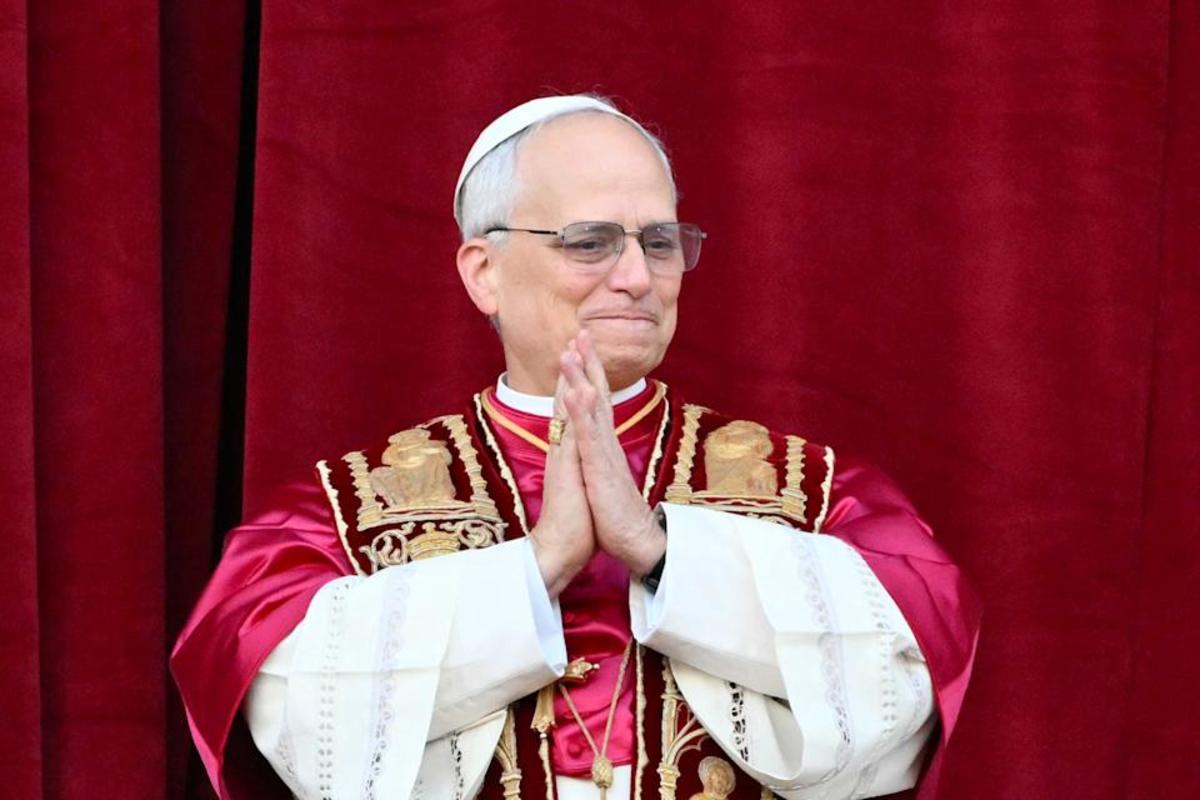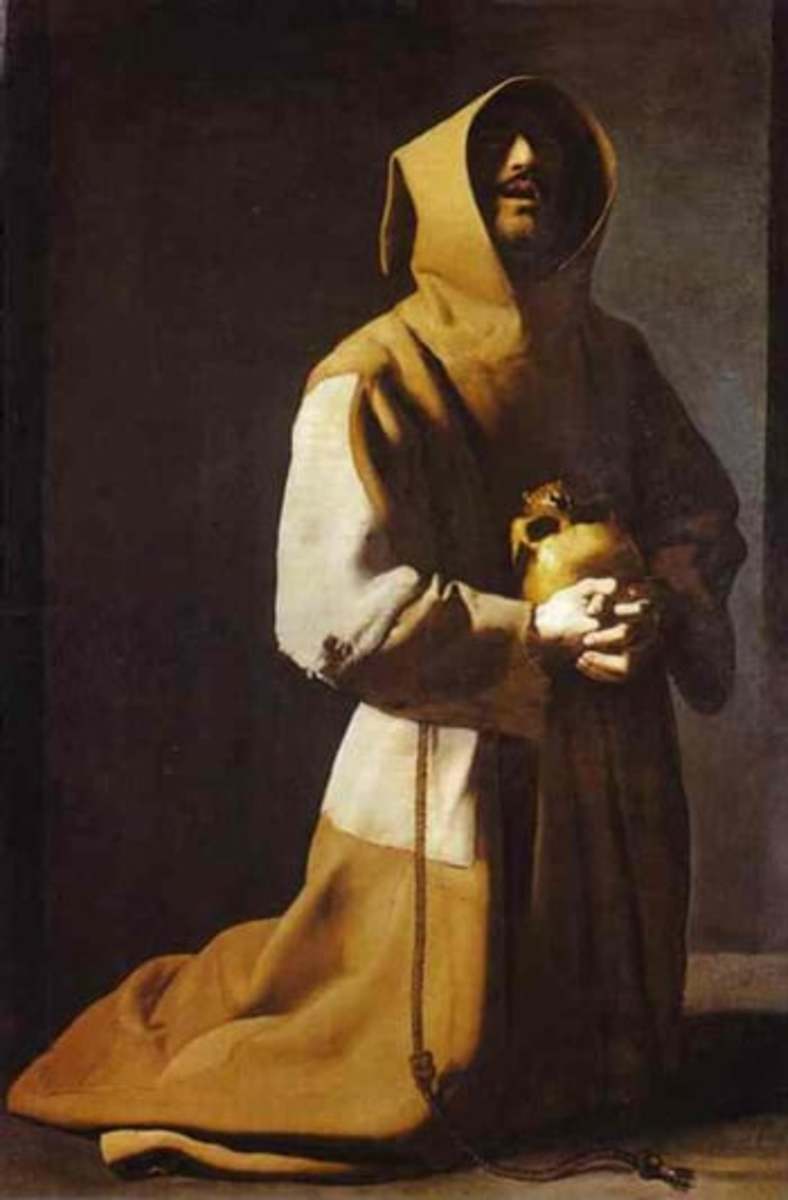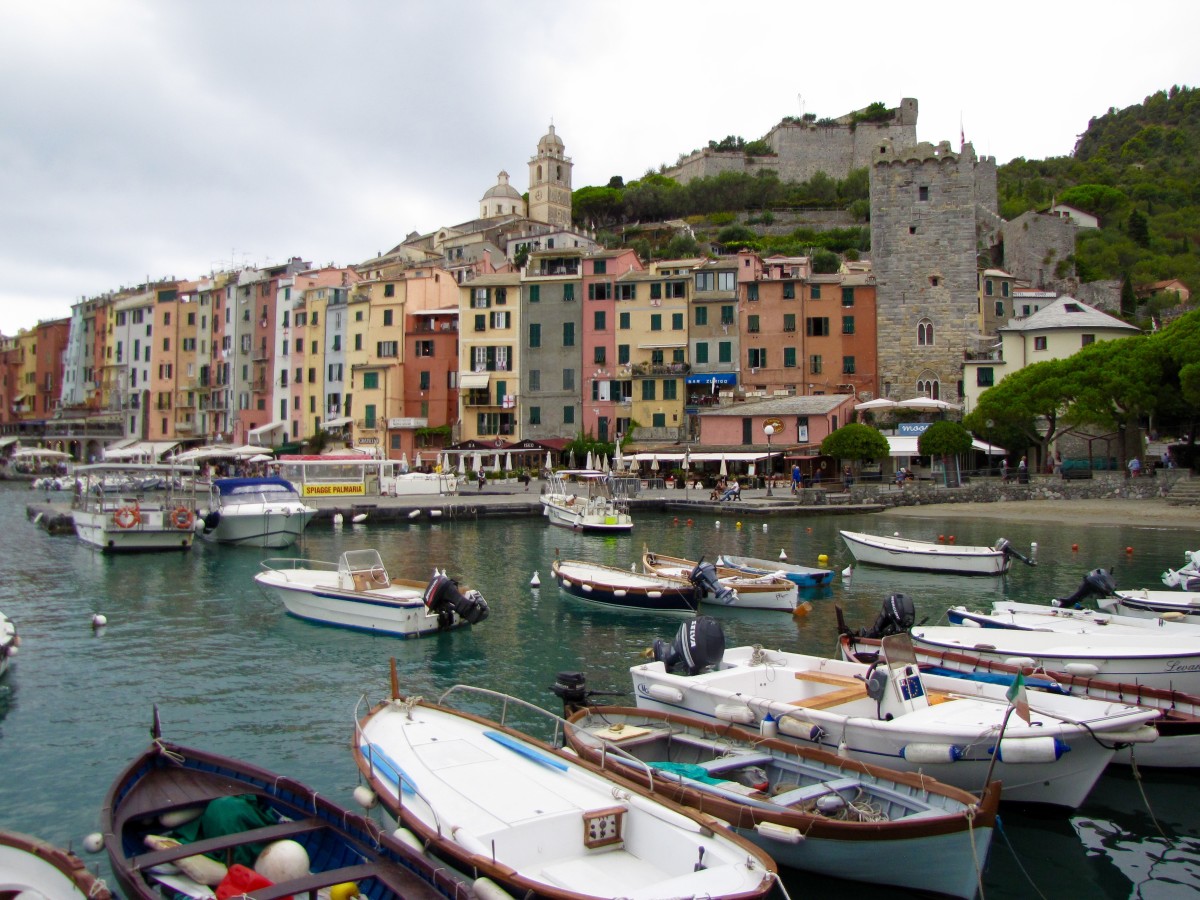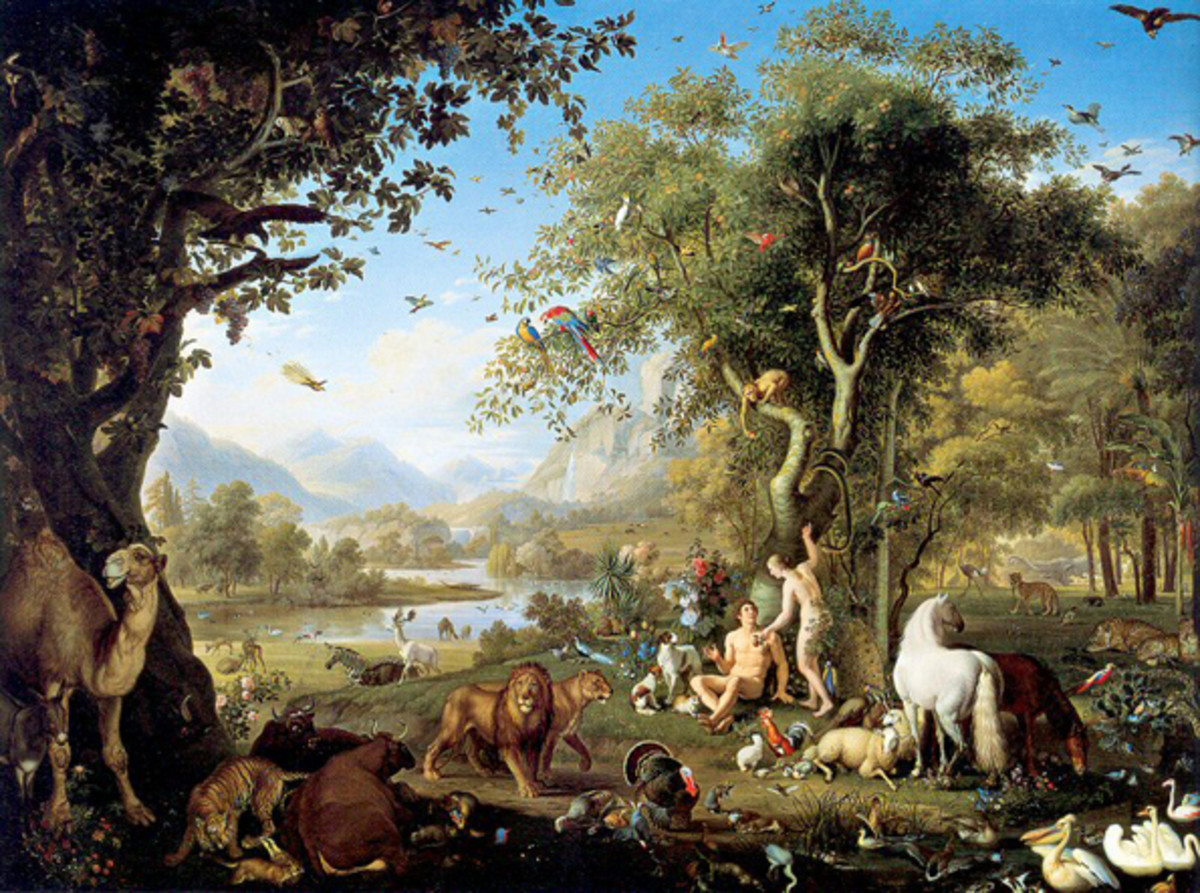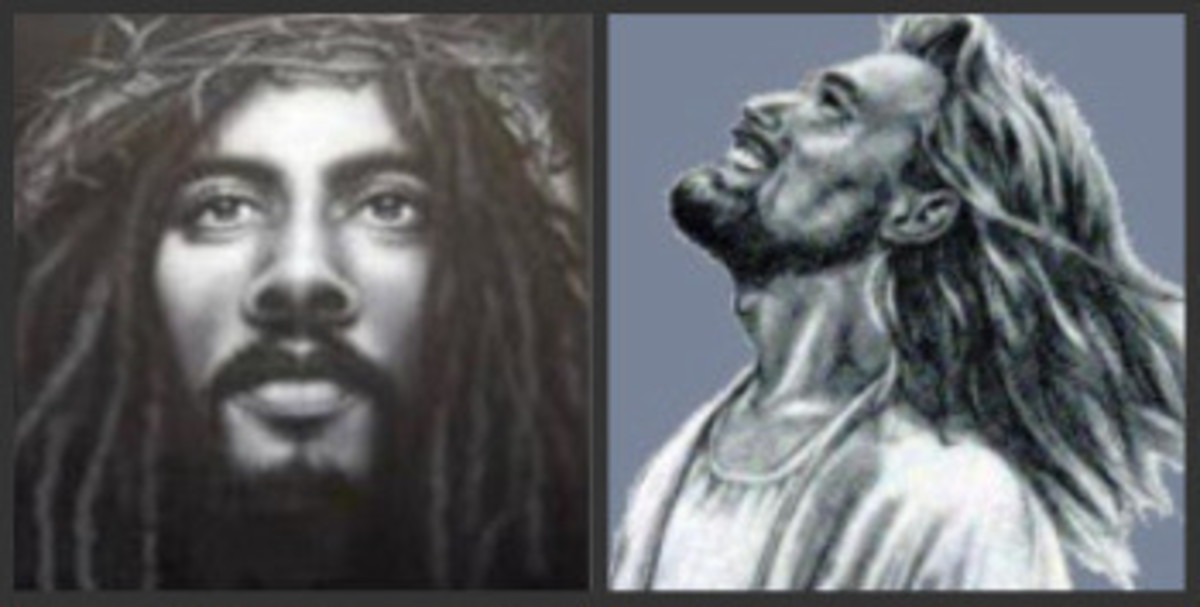St. Francis of Assisi
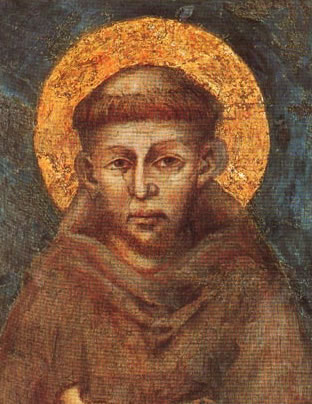
An Examination of the Franciscan Sources
Most people think of saints as having the perfect life free of pain, suffering, and sorrow. On the contrary, many saints experienced struggle in their daily lives. St. Francis of Assisi endured a strained relationship with his father just like many do today. Below is an examination of the relationship between Francis and his father, Pietro Bernardone, as depicted in the many Franciscan sources.
Who is Pietro Bernardone?
- A merchant of wealthy stature who desires to keep this attained status
- A committed business man willing to sacrifice in order to succeed
- A married man who cares for his wife and two sons
- A father who wishes a life of security, wealth, and happiness (as he knows it) for his son
- An individual who for whatever reason is comfortable seeking out a bishop’s assistance
- A man who is very concerned with appearance, family honor, and acquiring the respect of others
- Arguably, a logical and calculating man who does not value spontaneity and in fact sees it as a weakness
- A man who expects his authority to be followed. The head of the household- Pietro renames his son Francis after his mother had already named him John
The Life of Saint Francis – by Thomas of Celano - 1229 (1C: 8-15a, 53)
- The priest of San Damiano initially refuses to keep the money that Francis attempts to give him because he doubts the authenticity of Francis’ conversion story- he thinks he is being mocked. Eventually, the priest lets Francis stay at the church, but refuses the gift of the money out of fear of Francis’ parents (not out of fear of Pietro only, as is sometimes held).
- Upon hearing of Francis’ condition of living, Pietro is touched inwardly with sorrow of heart and deeply disturbed . Does Bernardone care for his son? I think Celano gives us an indication of that with this phrase.
- Pietro immediately arose, not to free him, but to destroy him. He shut him up for several days in a dark place…badgered him, beat him, bound him.
- Perhaps Pietro turns to recover the money so adamantly so as to refuse to sponsor anything so attached to his son’s new way of life that has torn him from him?
- Did Pietro threaten to revoke inheritance in a last ditch effort to draw Francis back? Did he really think Francis would so quickly and wholeheartedly agree to the order?
- We frequently hear of the chilling exchange between Francis and his father before the Bishop, but these words are not found in 1C, the earliest life of Francis. Why is this?
The Life of Saint Francis – by Julian of Speyer – 1234-1235 (LJS 6-9)
- The priest of San Damiano refuses the money offered by Francis initially because he feels he is being mocked and then out of fear of Francis’ parents .
- When Pietro heard of the ridicule being thrown upon Francis throughout the town he ran after him in an inhuman, rather than a fatherly way…and raged at him more than the others .
- Julian tells us that Bernardone inflicted Francis with blows, insults, and threw him into a cell in chains .
- Before the Bishop, Julian of Speyer gives no indication that any words were exchanged between Francis and Pietro, especially the famous account whereupon Francis denies the fatherhood of Bernardone.
The Anonymous of Perugia – by John of Perugia – 1240-1241 (AP 7-9)
- In this account of the interaction between the priest and Francis, the saint only attempts to give the money to the priest for safekeeping and is denied simply because the pastor has no safe place to store it.
- Pietro hears of his son’s living conditions and style of life and vent his rage against him. He loved him in a worldly way and was longing for the money . Bernardone did indeed love his son but had expressed this love in a materialistic way his entire life.
The Legend of Three Companions – 1246 (L3C: 2, 9, 16-20, 23)
- His mother named him John, his father later names him Francis
- Francis’ father appears to have been away on business many times throughout his childhood and young-adult life. During these occasions it is possible that he may have missed some indications of his son’s charitable deeds that would later be the sole focus of his life.
- The priest lets Francis stay at the church but refuses to accept the money out of fear of Francis’ parents . Pietro’s reaction to Francis’ new lifestyle is identical as in 1C.
- Pietro confines Francis to home and locks him up in a dark place for several days…to turn his spirit to the vanities of this world. Did Bernardone wish to keep his son surrounded in a world with which he himself was quite familiar and so keep his son safe, secure, and wealthy- something Pietro so valued?
- In the L3C, Pietro first goes to the palace of the commune to complain to the city magistrates. They send messengers to Francis to summon him.
- With no success found in legal measures, Pietro then complains to the Bishop, who in turn summons Francis
- NOTE: Pietro is only asking Francis to return the money taken from the house. No mention of made of revoking inheritance.
- “Listen to me, all of you, and understand. Until now I have called Pietro di Bernardone my father. But, because I have proposed to serve God, I return to him the money on account of which he was so upset, and also all the clothing which is his, wanting to say from now on: ‘Our Father who are in heaven ,’ and not ‘My father, Pietro di Bernardone.’”
- Why these words now and not in earlier documents? Any thoughts or ideas?
- Possibly a new addition plucked from General Minister Crescentius’ many documents?
Pietro overcome with unbearable pain and anger…treated indignantly for he left nothing for his son to wear
The Remembrance of the Desire of a Soul – by Thomas of Celano – 1247 – 2C: 3,12
- Named John by his mother, a baptismal record is also given in 2C to reinforce the idea that grace was operating from the very beginning of Francis’ life. John Baptist = prophetic.
- “No one felt a young man of such noble manners could be born of the stock of those who were called his parents.”
Pietro is portrayed harsher- ‘judging it madness to be a servant of Christ…’ Much information is left out in 2C: Pietro throwing Francis in ‘jail’, Pietro abusing Pica, etc. As in L3C we hear of Francis’ words addressed to Bishop and within earshot of many who had gathered about- Pietro no longer father, but Father in heaven…
The Major Legend of St. Francis – by Bonaventure – 1262 – LMj: I.2; II.1-4; VI.1
- Priest will not accept money offered to repair church for fear of Francis’ parents
- Pietro dragged him home, badgered him first with words, then with blows and chains .
- No indication of duration, conditions, etc.
Pietro returns from out of the country reviling Pica with a bitter tongue-lashing Pietro first attempts to recall Francis, but in seeing no hope for success, turns efforts to recovering money. Bernardone then brings Francis before the Bishop to revoke inheritance. As in L3C and 2C, Francis delivers the words dissolving Pietro’s fatherhood
- Nothing is said of Pietro’s reaction
- But Francis later says “…what the son of Pietro Bernardone needs to hear… ”
- What might the inclusion of this phrase mean concerning the ‘relationship’ between Francis and Pietro after his public renunciation?
The Minor Legend of St. Francis – by Bonaventure – 1263 – I.1, 5-7
- First called John by his mother, and then Francis by his father, he held on to the name his father gave him
- Pietro is portrayed rather harshly in LMn
- His father, raging and fuming because of all this, seemed as if he were forgetful of natural pity. He began to torment with blows and chains the son who had been dragged home. By wearing down Francis’ body with physical abuse, he hoped to turn his mind to the attractions of the world. And later, He began to insist vehemently that Francis go with him to the bishop of the city and renounce into the Bishop’s hands his heredity right to all his father’s possessions.
Questions to consider…
- Did Pietro love Francis?
- Did he take good care of Francis?
- What were Pietro’s hopes for Francis?
- Were those hopes reasonable, cruel, or not understandable?
- Do you like Pietro?
- Who is responsible for the break in their relationship: Pietro, Francis, or both of them?


